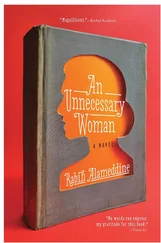“My grandfather gave you all two drops of condensed milk so you would carry me when I got tired.”
A boy much bigger than Jardown lifted him onto his shoulders. They began the long trek home. Soon, however, the sun shrank and everything grew dark. The boys walked and walked and walked and walked, but they couldn’t find their way out of the forest.
“Which way is the right way?” one of the boys asked.
“This way.” “That way.” “No, that way.” “No, this way.”
In the distance the boys heard the vicious barking of a dog. In the opposite direction from the barking, they saw a light. They wondered which they should walk toward, the barking or the light. After much deliberation, they asked Jardown: “Which way should we go, Jardown? In one direction we have a dog barking. Should we go there, or should we go where there is light?”
Jardown, the smart one, pondered the question. He said, “If we go toward the dog, it might bite us. I think we should go toward the light.”
The boys walked toward the light, which was coming from a cottage in the middle of the forest. They knocked on the door, but no one answered. They entered and decided to wait there till morning, when they would be able to see their way back.
After they settled in the cottage, the boys heard a loud noise that sounded like a huge wild animal outside the door. The boys scuttled about and hid behind every piece of furniture. Some went behind the curtains, two crouched under the sofa, one even went up the unlit chimney flue. The door opened, and a big, hairy monster walked in — big as in bigger than a camel standing on its hind legs, but not quite as big as an elephant; hairy as in even hairier than a bear and with a big beard and long hair. He walked in, the sound of each step echoing through the house. The monster took a deep breath. “What’s this I smell?” he asked. “It smells like I have humans in here. Young, tasty flesh. I love the smell of boys. Where are they? Where are the yummy boys?”
He searched behind the chairs, under the sofa. He found each boy, one by one. He even located the boy in the chimney. The boys huddled in the middle of the room.
“What are you boys doing in my house?” the monster asked. One of them said in a low, quivering voice, “We can’t find our way home.”
The monster looked at the feast of boys in front of him, the aroma of tender flesh making him drool. He realized that he wouldn’t be able to eat all the boys in one sitting, there were so many of them. The best thing to do would be to get the boys to bed and then eat them one by one while they slept. The monster told the boys: “Allow me to be your host. Spend the night here. I know the way back to your village, but I can only find it when there is light. In the morning, I will show you the way back home. No one finds his way in the dark. Sleep here, where it is safe.”
The boys relaxed, breathed a sigh of relief, and went off to bed. Not Jardown. Being the smart one, he realized what the monster was up to. He’d stay awake so the monster wouldn’t eat them. The monster waited diligently and uncomplainingly outside the boys’ room, counting out time. He peeked from behind the door and asked quietly, “Who is asleep and who is awake?”
“Everybody is asleep,” Jardown replied, “but Jardown is awake.”
“Why is Jardown awake? What does Jardown want?”
“Jardown can’t sleep because every night before bed his grandfather bakes him a loaf of bread.”
So the monster went into the kitchen, lit the fire, and began to bake a loaf of bread. When he finished, he brought the bread to Jardown and went back out of the room to wait for the boy to sleep. Dawn was breaking when the monster asked quietly from behind the door, “Who is asleep and who is awake?”
“Everybody is asleep,” Jardown replied, “but Jardown is awake.”
“Why is Jardown awake? What does Jardown want?”
“Jardown can’t sleep because every night before bed his grandfather brings him water from the river in a sieve.”
The monster thought that Jardown would go to sleep as soon as he brought him water from the river in a sieve. He hurried out of the house to the river. As soon as he was out, Jardown woke all the boys. “Hurry,” he told them. “We must run. The monster wants to eat us. We have to get out of here. It is almost light out, and we can see our way back home. Hurry.”
The boys ran out of the house. They got to the river and noticed the monster in the distance trying to fill the sieve with water. The boys quickly and quietly swam to the opposite side, the older ones helping the younger ones across. When they had finished, the monster looked up and saw his banquet of boys across the river. He ran after them. “Let me come with you. I know the way back home. I can help you. How did you get across the river?”
Jardown pointed to the millstones near the monster. “The best way to cross the river is to put one of those stones around your neck and walk across. That’s how we did it.”
The monster put one of the millstones around his neck. He walked into the river, and the heavy stone pulled him down to the bottom. The boys ran home, and Jardown went to his grandfather, who was very happy to see him, having worried all night.
This is the story of Jardown, the little boy who outwitted the big monster, and that is why, in winter, when the river gets rough, if you get close to the white, raging water, you will be able to hear it saying, “Everybody is asleep, but Jardown is awake,” followed by a deep, long sigh.
• • •
The hakawati, all one and a half kilograms of him, arrived in a lake of blood. His mother had been noisy, but the baby was quiet. After being assured that it was a boy, with ten toes, ten fingers, and an abundance of unruly, matted hair, Lucine took a deep breath and swallowed hard. She asked the midwife if her baby was alive.
“He breathes,” she said. “But barely. He’s the smallest baby I’ve ever seen. He’s no bigger than a rat.” She lifted him by the right leg, shook him, and spanked his behind.
“He’s not crying,” his mother said. “Why isn’t he crying?”
The midwife held the hakawati as if he were a dead ferret. She was about to shake him harder when the doctor admonished her. “Give him to me,” he said. Ismail began to cry the instant he landed in his father’s arms. The doctor passed him right back to the midwife.
Someone had placed the evil eye on the baby. It wasn’t only that he was a bastard, tiny, and not very healthy. He was an ugly baby and would grow up to be an ugly child, an ugly adolescent, and an ugly man. There was no escaping that. But, of course, his mother loved him.
“Let me see him,” Lucine said. She reached out her arms for the crying baby. She did not recognize anyone in his face. “What an angry boy.”
Oh, and he also had colic.
“Should I try to feed him?”
The doctor thought there was no point yet, but the midwife disagreed. “Feed him. Feed him. Train him to eat. It’s never too early. You have no milk yet, but all the activity will get you milky. He will probably get nothing but glue first, but it’s all good. He’s so small that he needs every drop of food. If you don’t produce milk, there’s Anahid, but I think you’ll cow fine.”
Lucine unbuttoned her blouse and took her left breast out. The doctor gasped involuntarily, stared indelicately. The hakawati took to the breast as a hummingbird takes to the air. The breast provided no milk, so he began to cry again. He cried for an hour, for two, for three. The house didn’t sleep. The doctor’s wife went in to look at mother and child but could offer no solace. She sent her husband.
“I don’t think I have any milk yet,” Lucine said. In the flickering light of the one candle, she showed him her breast, pushed her chest out toward him, squeezed her nipple. “Look,” she said. “Look.” He looked. “No milk yet.”
Читать дальше












